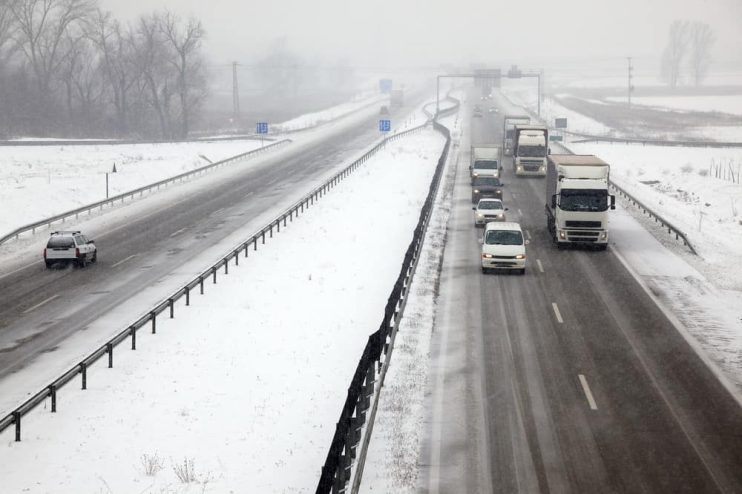
The winter is a great time for myths. From Jack Frost through to Father Christmas, there’s plenty there to stoke the flames of imagination. And of course, motoring as you know, is not immune from wild speculation and story. There’s all kinds of advice, information and directions out there about how you should handle the colder months from behind the wheel of your car – and many of them are simply not true.
Fortunately we’re on hand to go through some of the most popular winter driving legends helping your sort the fact from the fiction. Make sure you’re armed with the right information and don’t get caught out because you made some wintertime assumptions.
Windows and Exterior
The outside of your car has to deal directly with the icy weather, impacting your driving experience. There’s plenty of talk out there about how you can reduce the painful effects – but what’s the cold, hard truth?
You can be fined if you leave your engine running to defrost the windscreen
This one is: TRUE
It’s a public offence to leave your engine running unattended on the public road, which could see you getting fined. However, you are allowed to run your engine on your own driveway – but if you care about the environment then de-icers and scrapers are kinder for the planet. And remember that your insurance won’t pay out if someone pinches your car with the keys in the ignition.
Don’t pour boiling water on your frozen windscreen
This one is: TRUE
The sudden temperature change will be too much for even the toughened safety glass on your car’s windscreen, damaging its structural integrity and even causing it to crack. The ideal solution is to buy a frost cover to fit on your car the night before a suspected frost. It’s the easiest way to prevent your windscreen from becoming frosted.
You can damage your electric windows if you don’t de-ice them properly
This one is: TRUE
Electric windows are prone to damage. If you try to open frozen side windows you can break the side trim or even the motors. Remember that even spraying de-icer on the screen is not an instant fix. It needs time to work and attack the ice.
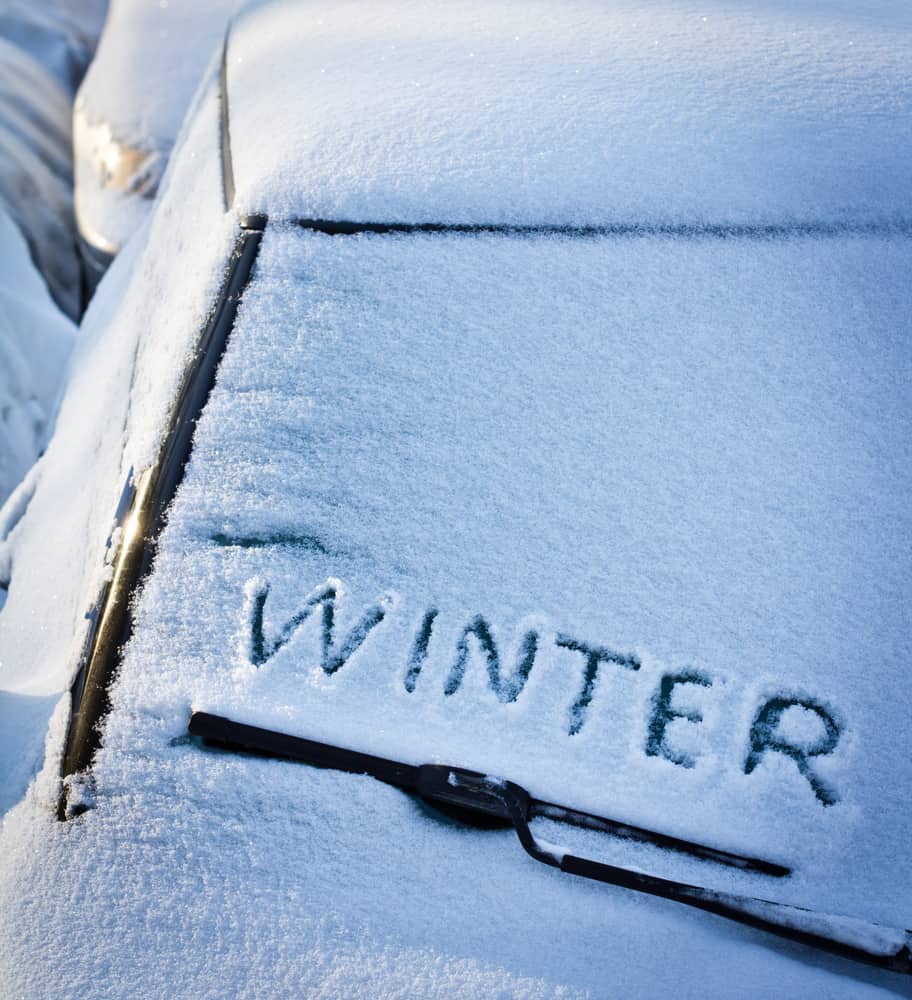
Coating your wiper blades in vinegar will extend their life
This one is: FALSE
You’re better off buying new wiper blades and going through the simple replacement process rather than trying to reinvigorate old blades.
It is illegal to travel with a roof and windscreen full of snow
This one is: TRUE
Make sure you clear all snow from these surfaces before you embark on your journey or you could find that you’re getting fined by the boys in blue. It’s right there in your Highway Code if you need to check it. Be aware that it’s also illegal to drive with snow on your lights, mirrors, and all of your windows. Under UK law if the police deem this dangerous they have the right to stop and fine you £60.
Driving with snow on your number plate is illegal
This one is: TRUE
Leaving snow on your number plate could land you a fine of up to £1,000 if you’re caught out by the police. Blocking your number plate from the watchful lenses of road speed cameras and the eyes of the police prevents you from being identified for checks in the event of a road crime. The law applies to both front and back plates on your car, so make sure you check and clear both.
Wheels and Tyres
Wheels and tyres are responsible for holding you on the road in icy conditions. It’s vital that these are working well to stop you sliding around. But what’s the truth when it comes to keeping them in good working order?
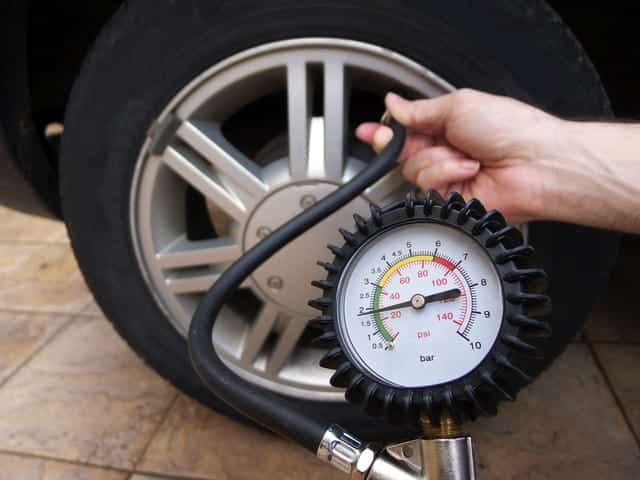
Reducing tyre pressure gives better on road traction
This one is: FALSE
In fact it could even endanger you when out on the road. You want to keep firm tyres to ensure that the grip works as it’s intended. Make sure your car tyres are correctly pressurised in the winter.
Winter tyres make for better grip in cold weather conditions
This one is: TRUE
Winter tyres are constructed from special rubber compounds that are simply better at dealing with cold weather, and usually have special grip patterns that are optimised for shifting water from melting snow and ice.
Changing to winter tyres could invalidate your insurance
This one is: FALSE
Whilst it is correct that most insurers require you to notify them of all modifications to your car, the majority of UK insurance providers are signed up to the Association of British Insurers (ABI). As a regulatory body they have created the Winter Tyres Motor Insurance Commitment, which states that clients do not need to inform their insurer of this upgrade as it improves the safety of your vehicle during the cold months. Be sure to check however, as your insurer may not be one of the majority signed up to this ABI scheme.
Try to avoid driving rear wheel drive cars on the snow and ice
This one is: FALSE
Many drivers are concerned that their rear wheel drive cars will spin out and snake about when driving on snow or ice. In fact with the application of snow belts, chains or even special socks to the rear wheels you should get the extra traction you need to give you power and peace of mind.
On the Road
The road is unquestionably a dangerous place when covered in ice, snow or worst still, the dreaded black ice. Many people claim there are special measure you must take, with others saying that the law can be a little more lenient due to the difficulties faced by drivers. But what is the truth behind all the hearsay?
Driving with more lights on will help you during periods of snowfall
This one is: FALSE
More lights often won’t help in times of decreased visibility. You may find that foglamps give you a little better sight of the road, but in normal situations dipped headlights will be more than enough to get you seen and to see other motorists. You could however upgrade your headlights to gain a little more vision.
It is illegal to driving in wellies (wellington boots)
This one is: FALSE
It is, of course, the responsibility of the driver to wear the right footwear to remain in full control of your vehicle. The highway code says to wear clothing and footwear that do not prevent you from operating your vehicle in the proper manner. If you feel that the wellies are stopping you from having the same control as normal shoes, then make sure you change into a pair of more suitable shoes after you have hiked around in wellies. Insurance companies could invalidate your claim if it turns out you were driving in wellies and they believe this has compromised your control of your car.
You should avoid back roads wherever possible
This one is: TRUE
Whilst busier roads may mean longer journeys under normal conditions, back roads are less likely to be gritted and there are very few other drivers on the road who can help you if you break down. Stick to the tried and trusted routes when you’re scooting around your own home city, town or village and stick to the sat nav if you’re going somewhere new.
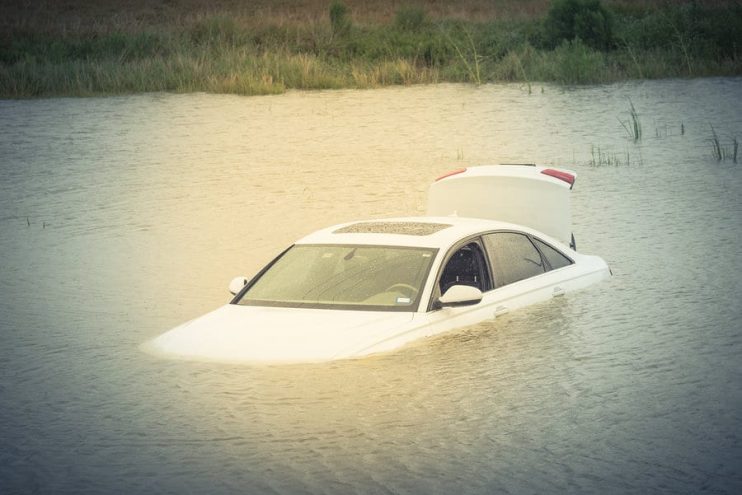
Driving through floodwater could potentially invalidate your insurance
This one is: TRUE
Check the small print in your insurance contract. Many insurers won’t cover you if you drive through flood water when out on the roads. However some contracts talk about avoidable and unavoidable floodwaters – with fairly self-explanatory names. Insurers that use these terms will often claim that floodwaters are avoidable. Remember, with a typical car, if the depth of water is greater than 4-6 inches, it’s best to avoid driving through it.
Reduced daylight hours makes driving in the winter more dangerous
This one is: TRUE
It’s hard to say whether or not driving is less dangerous in the day or night under normal conditions, but throw in all the hazards that can occur at winter time and the dark dramatically increases the risk of something not so great happening. Think of hard to see pedestrians, less confident drivers making poor decisions, and poorly lit areas hiding sheets of ice. Darkness is definitely more hazardous without good light. Unless your journey is essential, think about alternatives and try to plan it during daylight hours.
You must carry an emergency winter kit in your car – by law
This one is: FALSE
There is currently no UK law that dictates the use of emergency winter kits. However, you might want to carry one as it does give you that peace of mind if something untoward were ever to happen on the cold roads. Pack useful items. Torches, warm clothes, bottle of water, chocolate, spare battery for phones.
If you crash on ice, it’s never your fault and insurers must pay out
This one is: FALSE
Insurance companies are only responsible if you are not at fault. If you are in control of the car and the provider deems that you could have acted to prevent the accident or damage, then as you would expect, they simply will not pay out.
If another driver is involved, then as with all standard claims, it will depend on the circumstance of the accident. Be sure to get all information and details as you would with any incident and do not admit fault.
Remember that with icy roads braking distances can increase by ten times. Drive at all times with due diligence and be safe.
Disconnect your battery at night to save power
This one is: FALSE
Simply put, taking the power cables off your battery won’t stop it losing power in the cold. It will just happen due to temperature changes. However, you will lose alarm functionality and could lose computer memory. Trust in a charger instead.
And finally
It’s always good to get your car ready for winter to make sure your vehicle is in the best possible shape to take on the cold. With proper preparation you can reduce your chances of an accident and confident of a road drama free season. Of course, even the likes of Lewis Hamilton get stuck in the snow occasionally, so it pays to know how to free up your car from the grip of a big drift you’ve driven through.


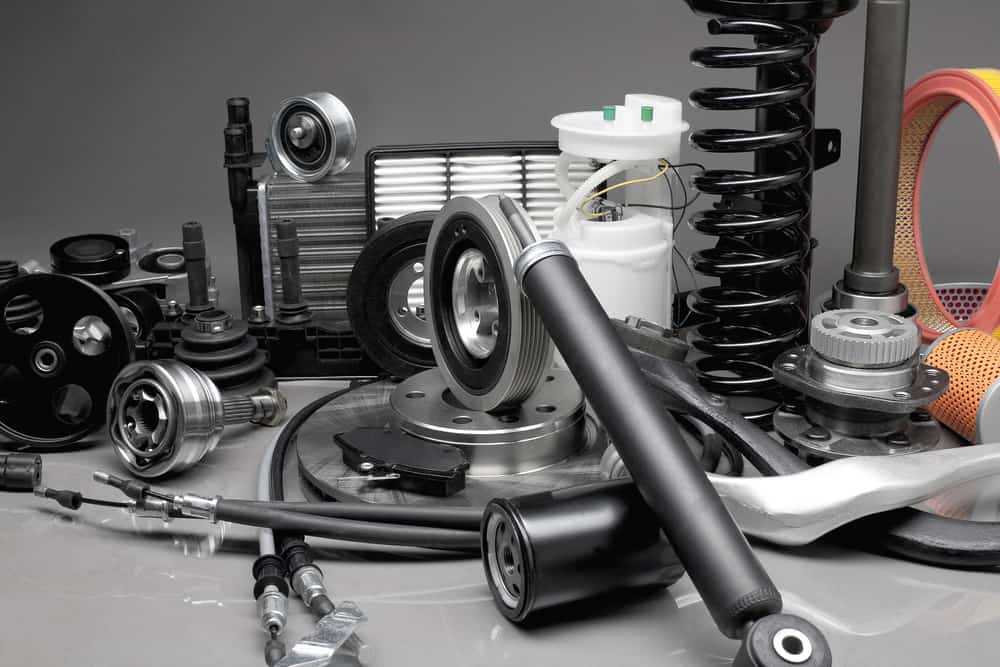

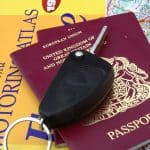








.png)